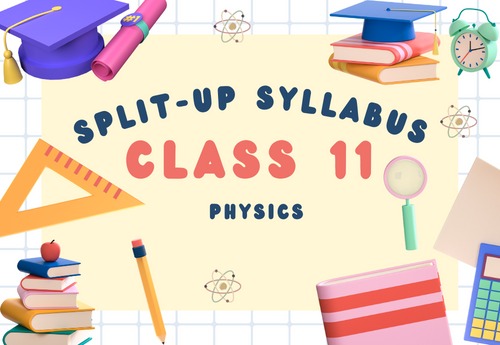Course Overview
This course introduces students to the fundamental concepts of chemistry, laying the groundwork for advanced studies. It emphasizes understanding the principles governing the behavior of matter and the changes it undergoes.
Course Structure
Unit I: Some Basic Concepts of Chemistry
- Importance and scope of chemistry
- Laws of chemical combination
- Dalton’s atomic theory
- Mole concept and molar mass
- Stoichiometry and calculations based on stoichiometry
Unit II: Structure of Atom
- Discovery of subatomic particles
- Atomic models (Thomson, Rutherford, Bohr)
- Quantum mechanical model of atom
- Electronic configurations of atoms
Unit III: Classification of Elements and Periodicity in Properties
- Modern periodic law and the present form of the periodic table
- Periodic trends in properties of elements
Unit IV: Chemical Bonding and Molecular Structure
- Valence electrons, ionic and covalent bonds
- Bond parameters, Lewis structure, VSEPR theory
- Hybridization, molecular orbital theory
Unit V: Chemical Thermodynamics
- System and surroundings, work, heat, energy
- First law of thermodynamics
- Enthalpy changes, Hess’s law
- Spontaneity and Gibbs energy change
Unit VI: Equilibrium
- Equilibrium in physical and chemical processes
- Law of chemical equilibrium and equilibrium constant
- Ionic equilibrium, pH, buffer solutions
Unit VII: Redox Reactions
- Oxidation and reduction
- Redox reactions, oxidation number
- Balancing redox reactions
Unit VIII: Organic Chemistry – Some Basic Principles and Techniques
- Classification and IUPAC nomenclature of organic compounds
- Electronic displacements in a covalent bond
- Types of organic reactions
Unit IX: Hydrocarbons
- Alkanes, alkenes, alkynes, and aromatic hydrocarbons
- Nomenclature, isomerism, and reactions
Practical Work
- Basic laboratory techniques
- Characterization and purification of chemical substances
- Experiments based on pH, reactions of acids and bases
- Qualitative analysis
🗓️ Class Schedule
- Duration: Academic Year
- Frequency: 3 sessions per week
- Mode: Hybrid (Online and Offline)
Study Materials
- NCERT Textbook for Class 11 Chemistry
- Supplementary notes and practice worksheets
- Access to recorded lectures and doubt-clearing sessions
Assessments
- Weekly quizzes and assignments
- Monthly tests covering multiple units
- Term-end examinations simulating board patterns
Student Journey & Milestones
- Phase 1: Understanding basic chemical concepts and operations
- Phase 2: Developing problem-solving skills and logical reasoning
- Phase 3: Applying knowledge to real-life scenarios and advanced problems
- Phase 4: Preparing for higher-level chemistry and competitive exams










